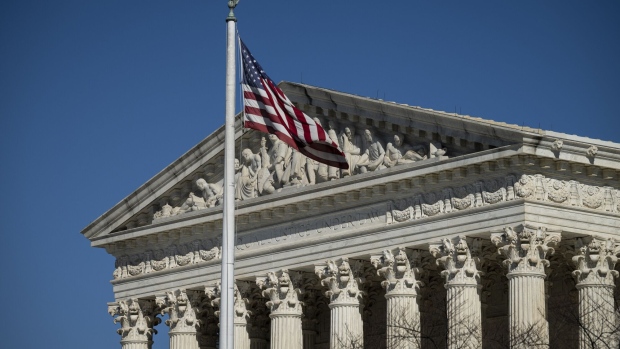Apr 15, 2024
Supreme Court Lets Idaho Enforce Transgender-Care Ban for Now
, Bloomberg News

(Bloomberg) -- The US Supreme Court let Idaho enforce a ban on providing gender-transition care for minors, as the justices stepped into a brewing culture-war battle over transgender rights.
Over three dissents, the justices largely put on hold a federal district court ruling that had blocked Idaho from enforcing the law statewide. For now, the ruling will apply only to the two teenage girls who sued to challenge the ban, letting them continue receiving treatment.
The justices in the majority cast the decision as less about the substance of the law than the reach of the district judge’s injunction. In two 13-page opinions that accompanied the order, Justices Neil Gorsuch and Brett Kavanaugh indicated the high court was trying to tackle what has become a nettlesome issue: nationwide and statewide injunctions issued by a single judge on a major controversy.
US District Judge Lynn Winmill’s ruling “did not just vindicate the plaintiffs’ access to the drug treatments they sought,” Gorsuch wrote for himself and Justices Clarence Thomas and Samuel Alito. “It purported to bar the enforcement of any provision of the law against anyone.”
Kavanaugh hinted in an opinion joined by Justice Amy Coney Barrett that he might support a ban on nationwide and statewide injunctions, saying it would reduce the occasions when the Supreme Court has to assess the merits of a case on an emergency basis.
Though procedural, the order is a blow to transgender-rights activists. “Today’s ruling allows the state to shut down the care that thousands of families rely on while sowing further confusion and disruption,” the American Civil Liberties Union, which is representing the two girls, said in a statement.
Justices Elena Kagan, Sonia Sotomayor and Ketanji Brown Jackson dissented. Writing for herself and Sotomayor, Jackson said the justices didn’t need to intervene.
“This court will almost certainly have a chance to consider the entirety of this case soon, whoever prevails below,” Jackson wrote.
Pending Appeals
The order comes as the justices deliberate behind the scenes on a set of appeals, including one pressed by the Biden administration in a Tennessee case, that could resolve the issue of gender-transition care nationwide. The court could say by the end of the month whether it will take up one or more of those appeals.
Idaho is one of about 23 states with laws or policies that restrict access to gender-transition treatments for adolescents, though several of those measures are on hold amid legal fights.
Idaho’s law bars more than 20 treatments, including puberty blockers, hormone therapy and surgery for transgender youths. Doctors and pharmacists who violate the law can face up to 10 years in prison. The state says the measure will protect vulnerable children from risky and dangerous medical procedures.
Opponents say the law flies in the face of the widely accepted clinical guidelines for treating youths with gender dysphoria, the condition characterized by distress over the incongruence between one’s gender identity and birth-assigned sex.
Winmill blocked the law in December before it could go into effect, saying the measure probably violates the rights of parents to decide what medical care their children will receive. Winmill also said the law probably runs afoul of the Constitution’s equal protection clause by barring treatments for gender dysphoria while allowing the same drugs and procedures for other medical conditions.
At the Supreme Court, Idaho Attorney General Raul Labrador focused on the reach of Winmill’s preliminary injunction, rather than the underlying constitutional issues. Labrador said Winmill should have limited his order to the two girls pressing the case rather than blocking the law statewide.
The girls, known in court papers as Pam Poe and Jane Doe, are both receiving estrogen, and one of them is also receiving puberty blockers, according to court papers filed by their lawyers at the American Civil Liberties Union.
The case is Labrador v. Poe, 23A763.
(Updates with comments from Gorsuch, Kavanaugh, Jackson, ACLU.)
©2024 Bloomberg L.P.







